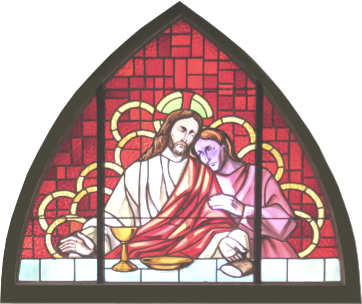One of my earliest memories of Advent, in the little country church of St. Elizabeth’s west of Gravelbourg, was the singing of the hymn O Come, Divine Messiah. When I was seven years old, we left the farm and moved to Gravelbourg itself, where our faith life was enriched by the traditions of the majority francophone community, and I learnt that there was a French version of the hymn too, that it was originally written in French: Venez Divin Messie. On this second week of Advent, I would like to offer a few reflections on the season, with reference to this wonderful hymn.
We often say that Advent is a season of waiting, and in the midst of this pandemic, we know the experience of waiting. When we hear “O Thou whom nations sighed for,” the words resonate, for the nations today are definitely sighing. Advent invites us to set our sights on the deepest sighing of the nations, the most profound sighing in human hearts, as we sing “Come, come to earth, dispel the night and show thy face, and bid us hail the dawn of grace.” Advent waiting is active, not passive. And it is meant to teach us something, to prepare us to welcome the coming of God into our lives. John the Baptist cries out in the wilderness, prepare the way of the Lord. Make straight his paths. Let the valleys be raised and every mountain and hill be made low. Here on the flat prairies of Saskatchewan we are well on our way, at least from the perspective of landscape! It’s the rest of our lives that need transforming.
The hymn O Come Divine Messiah reminds us how much we need God. We know it from the mess and woundedness in our lives, and we know it from the brokenness in our world. And it prepares us to recognize and welcome God in all the ways that God comes into our lives. The last verse reminds us that God does not come in the way we would necessarily expect: Shalt come in peace and meekness, and lowly will thy cradle be: All clothed in human weakness shall we thy God-head see.
Advent is a time where we hear of God’s dream for the human race. We hear this strongly in the readings of the prophets: that people that walked in darkness will see a great light; that God is preparing a rich banquet, where all our tears will be wiped away and death will be no more; that the wolf shall live with the lamb, calf and the lion will lie down together, and all will be well on God’s holy mountain; that God will turn our swords into ploughshares, and nations shall not lift up sword against nation. These dreams of God may be hard for us to believe and trust in. In this Sunday’s second reading we hear that God does not delay in fulfilling his promises, but that with the Lord one day is like a thousand years and a thousand years like one day. These Advent missives of hope and promise are like a plow that tills the furrows of our hearts, to loosen our doubts and break up the cynicism or despair that may have grown in us. We hear the dream of God in O Come, Divine Messiah too. The captive fetters will be broken, the long-lost fold redeemed; the night will be dispelled; we will hail the dawn of grace, and see God’s face. When life is full of difficulties and challenges, it is a tremendous act of courage to continue to dream God’s dream, to continue to hope, and to carry a deep joy within us.
One final thought, and one last theme in this Sunday’s readings. Both Isaiah and John the Baptist speak about the pathway of our God. In the desert, in the wilderness, prepare the way. A few years ago I had the opportunity to walk the camino in Spain, an 800 kilometre trek from St Jean Pied-de-Port in France to Santiago de Compostela. ‘Camino’ literally means ‘the way.’ On the road to Santiago, the way is marked out by yellow arrows. You need to stay vigilant, otherwise you get lost in a hurry. Each yellow arrow quietly speaks the message that we hear from Isaiah, who exhorts, “This is the way, walk in it” (Is 30:21), and Jeremiah, who relates: “Thus says the Lord: Stand at the crossroads, and look, and ask for the ancient paths, where the good way lies; and walk in it, and find rest for your souls” (Jer 6:16). In Advent, we are encouraged to walk the good way, to prepare the way of the Lord. But the heart of the message of the season is this: our God comes walking towards us on this path. Like a shepherd seeking out lost sheep, God comes to seek us out. There is a story in the Jewish Talmud of a king who had a son who had gone astray. The king sent a message to the son, return to your father. The son sent a message, I cannot. The king sent another message. Come as far as you can, and I will come to you the rest of the way. Our God comes to us not because we are good, or holy, or deserving, or ready. But out of love. O Come, Divine Messiah, the world in silence waits the day when hope shall sing its triumph and sadness flee away.
Watch video message HERE
